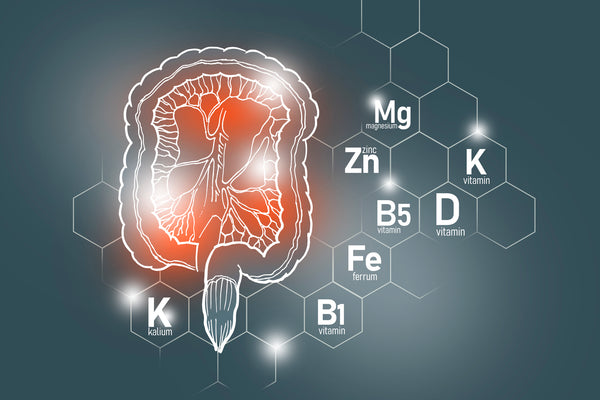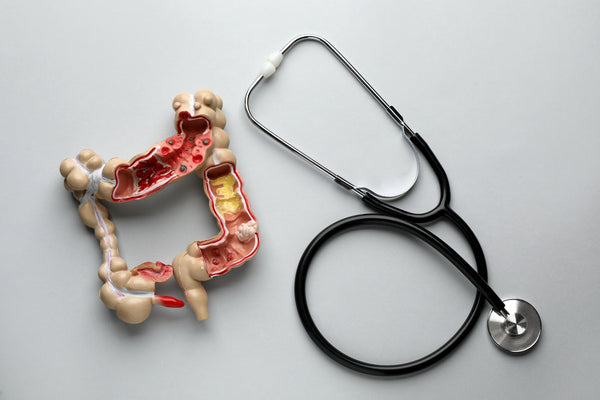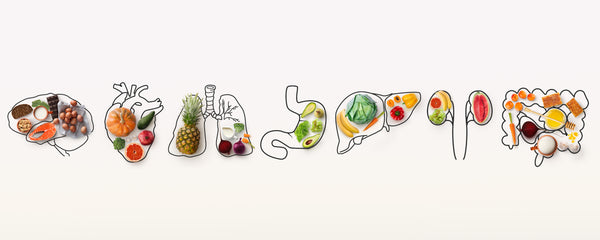Gastrointestinal Support

What is Gastrointestinal Support?
Gastrointestinal support refers to the various ways in which the digestive system, which includes the stomach and intestines, is maintained and kept healthy. This can include things like taking probiotics (good bacteria) to help with digestion, eating a diet that is high in fiber, and avoiding foods that may cause irritation or inflammation in the gut. It can also involve taking medications or supplements to treat specific digestive issues, such as acid reflux or constipation. Overall, the goal of gastrointestinal support is to promote the proper functioning of the digestive system, so that food is broken down and absorbed properly, and waste is eliminated efficiently.

The Importance of Gastrointestinal Support for Better Health
Gastrointestinal support is important because a healthy digestive system is essential for overall health and well-being. The digestive system is responsible for breaking down food, absorbing nutrients, and eliminating waste. When the digestive system is not working properly, it can lead to a variety of health problems, such as nutrient deficiencies, constipation, diarrhea, and even more serious conditions like irritable bowel syndrome (IBS) and inflammatory bowel disease (IBD). Additionally, poor gut health is also linked to a higher risk of chronic diseases such as obesity, type 2 diabetes, and certain types of cancer.
Having a well-functioning digestive system can also improve mental health, as the gut and the brain are closely connected. A healthy gut can lead to better mood, energy levels and cognitive function.
Overall, maintaining proper gastrointestinal support is essential for maintaining good health and preventing a wide range of health problems.
The Digestive System
The Gastro-Intestinal (GI) tract or digestive system includes all of the organs that food and liquids travel through after they are ingested. The GI tract is composed of the mouth, the esophagus, the stomach, the small intestine, the large intestine, and the anus. It is part of the larger organ system known as the digestive system. The digestive system is one of your body’s ten major organ systems and is composed of the GI tract (also known as the digestive tract) as well as the pancreas, liver, and gallbladder.

The GI Tract
The GI tract is responsible for the digestion of food, the absorption of water and nutrients, and the elimination of waste. Its function is to identify which nutrients, including vitamins, minerals, proteins, fats, and carbohydrates, obtained from food and water to absorb and which to discard as waste. Once absorbed in the GI tract, the nutrients can then be used or stored by your body. Digestion is important because it provides the nutrients necessary for the production of energy, growth, and self-repair.
The GI Tract and Digestion
The GI tract has a few tools with which it digests and breaks down food. One tool is mechanical digestion, which is chewing or masticating. Chewing mechanically breaks up larger pieces of food into smaller, more easily digestible pieces. Chewing is an important first step in the digestion process.
Another tool your body can use to digest food is chemical digestion. Chemical digestion occurs when your body uses stomach acid and digestive enzymes to break down food at a molecular level. The stomach acid and digestive enzymes break the bonds between molecules, further breaking down food and speeding up the digestion process. These enzymes include Amylase, Lipase, Maltase, Lactase, Sucrase, and Protease.

In addition to these mechanical and chemical processes performed by the GI tract, your body has a final tool at its disposal. This tool is the gut microbiome. The bacteria and archaea present in the GI tract are often referred to as “gut flora” or the "gut microbiome." These bacteria and archaea aid in the digestion of food by helping to break it down, and they also produce enzymes which in turn further aid digestion.
The Importance of Digestion
Proper digestion is essential for the absorption of nutrients. If your body cannot fully perform digestion, it won’t be able to completely absorb the nutrient molecules and gain the proper fuel it needs to function optimally. When the GI tract does not function properly, whether due to diseases or disorders, there can be wide-ranging effects as these illnesses interfere with the absorption of nutrients and the elimination of waste.
Gastrointestinal Disorders
Diseases and disorders can occur for various reasons, including an imbalanced gut microbiome, enzyme insufficiency, cancer, and various other causes. Many of these disorders are serious medical conditions that should be diagnosed and treated by a medical professional. If you think you have any of these disorders, please contact your medical provider immediately.
Gastrointestinal disorders and diseases can include:
- Diverticulitis
- Gastritis
- Pancreatitis
- Cholecystitis
- Cirrhosis
- Hepatitis
- Liver cancer
- Colon cancer
- Irritable bowel syndrome
- Ulcerative Colitis
- Crohn’s disease
- Celiac Disease
- Gastroesophageal Reflux Disease
- Peptic Ulcer Disease

Symptoms of Gastrointestinal Disorders and Diseases
While these disorders and diseases vary in their cause and severity, they can share common symptoms due to the nature of the GI tract.
These symptoms can include:
- Fever
- Nausea
- Vomiting
- Bloating
- Abdominal pain
- Bowel changes, such as constipation or diarrhea
While some of these symptoms can be treated with at-home remedies, it is suggested that you seek medical attention if these symptoms become chronic or severe.
The Benefits of Supplementation
Supplementation may help to support your body’s natural enzyme production and the gut microbiome. Supplements that help support your GI tract include digestive enzymes, prebiotics, probiotics, postbiotics, and herbal extracts.

Using the right supplement can make all of the difference. Many people use prebiotics and probiotics to fortify or regulate the gut microbiome, but this may not be enough to help support your GI tract. For example, many people also suffer from enzyme insufficiency, which occurs when the body does not produce enough enzymes or the right enzymes. In these cases, individuals may benefit from the use of digestive enzymes or herbal extracts. Herbal extracts can promote the production of enzymes in those individuals who suffer from enzyme insufficiencies.*
Rebalance and restore optimal digestive function with Gastrointestinal Support supplements from Interplexus, formulated to support healthy digestion, a balanced gut microbiome, intestinal integrity, and regular elimination.*


